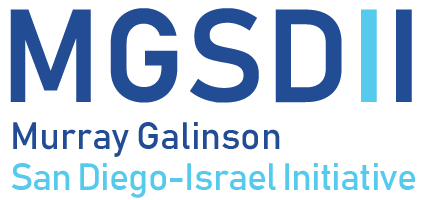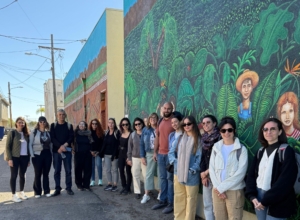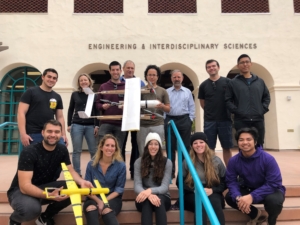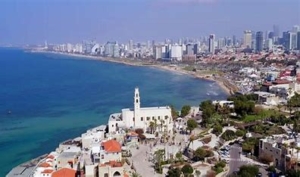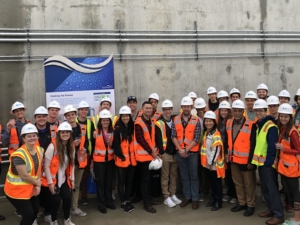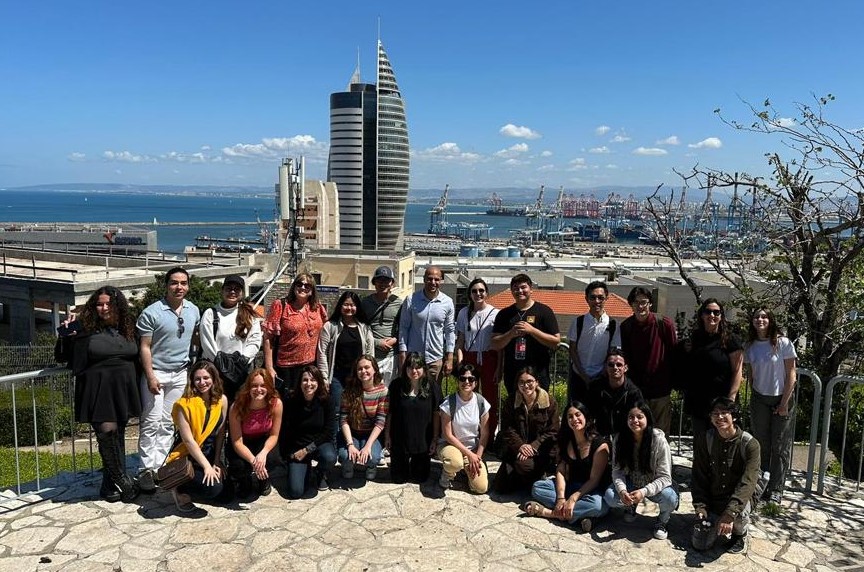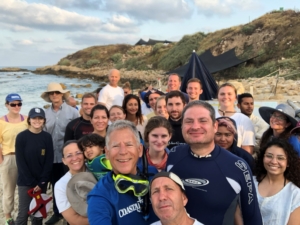Classroom Collaborations
MGSDII Faculty-Led Research and Trips between Israel and San Diego
Our Classroom Collaboration programs build bridges between San Diego and Israeli students and professors through academic partnership, cross-cultural experiences, and cutting-edge research. Throughout each term, participants work together on projects addressing real-world challenges. Cohorts travel to both Israel and San Diego, engaging with local communities, sharing insights, and co-presenting their findings. These collaborations foster global friendships, mutual learning, and impactful solutions for diverse communities.
UC San Diego, Urban Studies and Planning – Technion: High-Tech, Innovation, and the Society
The Joan and Irwin Jacobs Classroom Collaboration
This research project targets making technology accessible for marginalized communities, focusing on the disadvantaged communities of Jisr az-Zarqa in Israel and Logan Heights in San Diego. This longstanding collaboration brings together students and faculty from UC San Diego and Technion to develop policy and planning approaches that mitigate environmental disasters and climate change impacts for underserved communities. Learn more about our work in Logan Heights here.
Recent Highlights:
~ March 2025 academic exchange of 14 students, faculty, and directors from Technion joining their peers at UCSD
~ Collaborative community projects showing positive impact in Logan Heights
~ Ongoing research partnerships and joint academic grant submissions
~ UCSD student group to travel to Technion in Spring 2026
San Diego State University – Technion: Aerospace Engineering
Engineering students from both universities experience the real-life application of building drones together while researching exciting new innovations. As our oldest collaboration, this program has seen over 100 students travel and learn.
San Diego State University – University of Tel Aviv: Modern Israel History
The Jules and Gwen Knapp Family Classroom Collaboration
Students and faculty will explore the public/oral history of modern Israeli/US relations, through interviews with individuals residing in the communities they visit.
University of San Diego – Azrieli College of Engineering: Water Innovation
This permanent USD course explores Israel’s innovation in water engineering. Students learn first-hand the similarities between California and Israel, a leading expert in sustainability and innovation.
UC San Diego – Tel Aviv University: The Ancient Mediterranean World
The class travels throughout Israel, exploring how the past has shaped Israel today.
UC San Diego, Scripps – University of Haifa: Marine Archaeology and Climate Change
Students and faculty investigate the impact of long-term climate change and rising sea levels on the cultures of the eastern Mediterranean, inland and at the Tel Dor field school on the coast of Israel.
Student Testimonials
SDSU Aerospace Student
Embracing this opportunity was an outstanding life experience that allowed me to grow as a leader, engineer, and most importantly, a person.
Appreciating the various aspects of academics that were similar, vastly different, and the universal gratefulness for acquiring knowledge allowed for new camaraderie.
TAU Modern History Student
We had an insightful week visiting San Diego and finally meeting our co-students in person.
Being able to share our stories, our history, and our reality with students from the other side of the world — and seeing how interested and engaged they were — made me feel both proud and excited.
UCSD Urban Studies Student
Working with the Logan Heights community has been the most rewarding class I have taken thus far at UCSD.
One of the most impactful experiences has been the discussion surrounding the threat to democracy in Israel and how it relates to the Israel-Palestine conflict and discriminatory practices within Urban Planning as a whole. It was interesting to listen to the different perspectives coming from the Israeli Jews, American Jews, and Palestinians involved; I was able to learn from each of their experiences.
Azrieli Water Innovation Student
We found common ground across cultures and formed bonds that we hope will last far beyond this exchange. We were reminded that shared values can cross oceans. That, even in a different country, you can feel right where you belong.
This week gave us knowledge, connection, and perspective. We return to Israel not only as better students, but as more open-minded, curious, and connected individuals.
SDSU Modern History Student
Here in San Diego it’s very rare to meet Israelis, or even Jewish people, and the only kind of information we get about them is through the news – and you never hear very great things about Israel in the news.
This experience has been demystifying: they are just like us! I have been enlightened through this. We’re really just all the same.
TAU Modern History Student
This collaboration is more than just an academic experience; it’s a statement of resilience, connection, and hope.
It reminds that, even in difficult times, education and international cooperation pass gold.
Lead a Trip to Israel
If you would like more information on applying for funding for a professor-led student academic trip to Israel, tailored to your discipline or academic department, please contact Susan Lapidus, Executive Director, at susan@mgsdii.org.
100% of funding is to be used for direct costs and no indirect costs are included in grant support.
